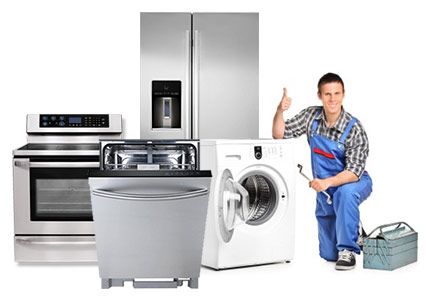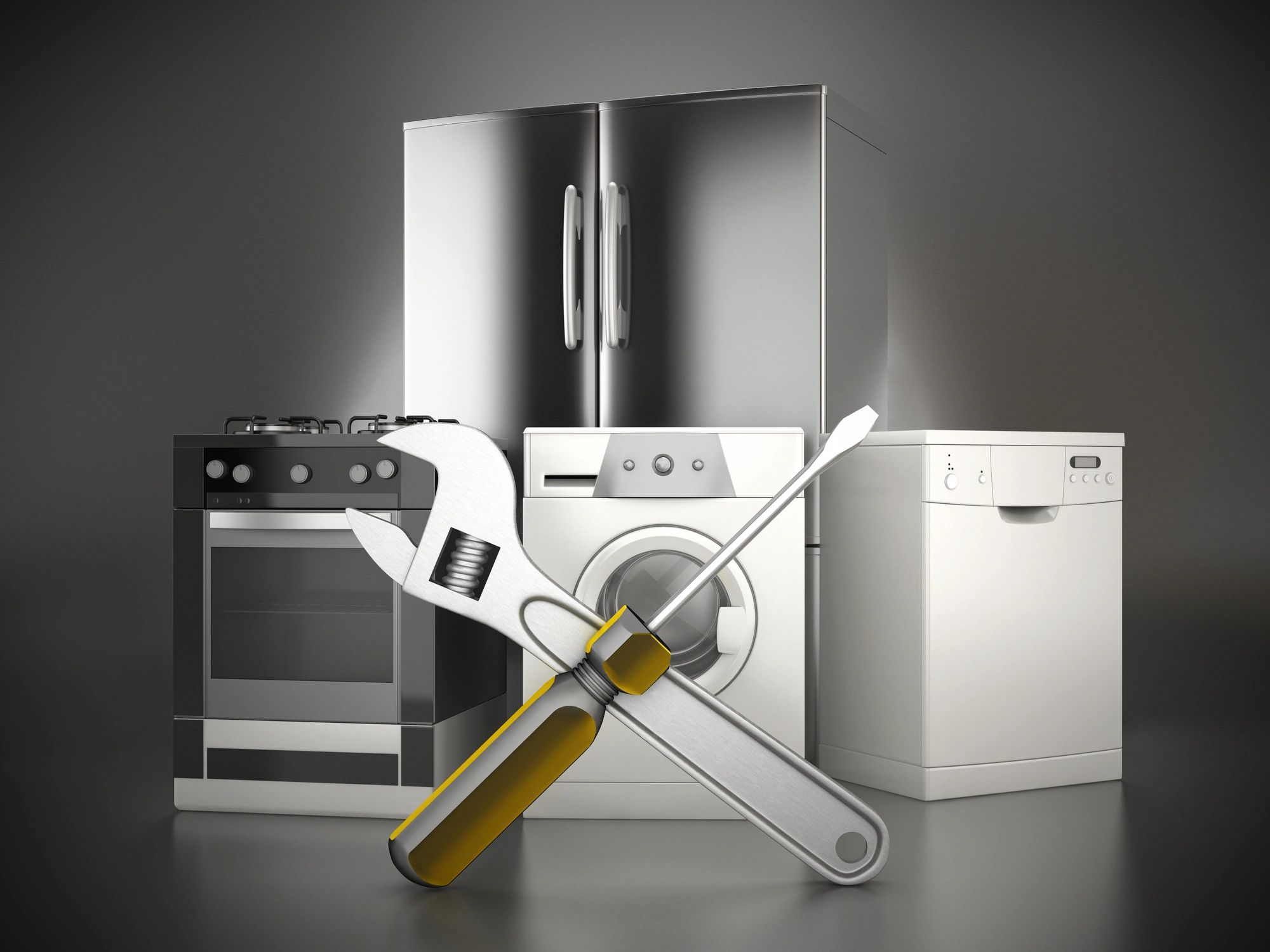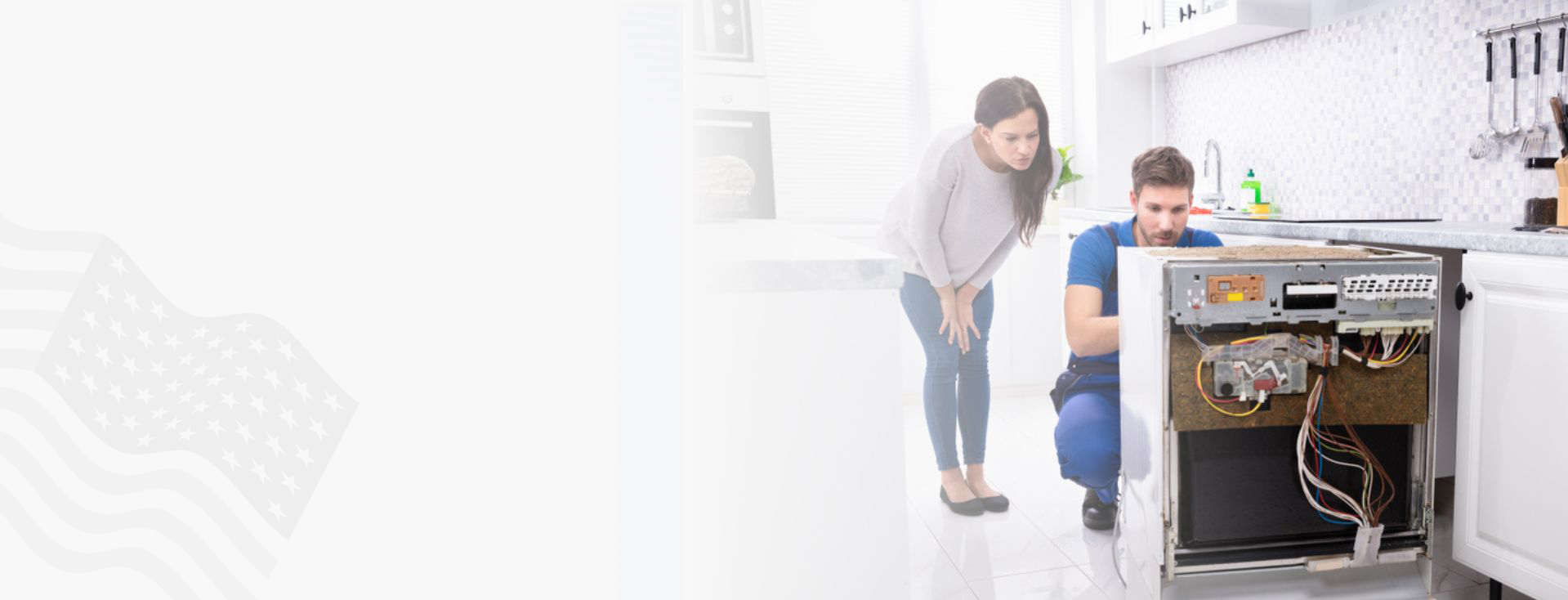The Ultimate Overview to Comprehending Device Repair in the house
When your refrigerator stops cooling down or your stove declines to warm, it can really feel frustrating. Comprehending appliance repair at home can conserve you money and time. You'll find out to recognize signs and symptoms, utilize crucial tools, and comply with an organized troubleshooting procedure. Prior to you begin, there are vital security preventative measures you require to take right into account. What are the most common problems, and exactly how can you fix them? Let's explore the fundamentals.
Common Device Problems and Their Signs
When your devices begin acting up, it's vital to recognize the indications early on. Disregarding them can result in larger concerns and pricey repairs. If your fridge isn't cooling effectively, you may observe cozy areas or condensation developing. This might indicate a failing compressor or a blocked vent.Your dishwasher may reveal problems through dirty dishes or uncommon sounds during cycles. If you listen to grinding or clanking, it's time to investigate.A washing maker that will not spin or drain can leave you with soaked laundry, recommending a clogged drainpipe or a malfunctioning pump.Lastly, if your oven's temperature seems off or it takes permanently to pre-heat, you may be managing a malfunctioning thermostat. By remaining sharp to these symptoms, you can attend to issues before they escalate right into major fixings.
Necessary Tools for Device Fixing
When you're dealing with appliance fixings in your home, having the right devices is necessary. Basic hand tools like screwdrivers and pliers will help you disassemble and repair different devices, while electrical testing tools assure you're functioning securely with electrical wiring. Allow's go over what you need to obtain begun on your repair journey.
Basic Hand Devices
Having the right tools is vital for efficient device repair in your home. Begin with a dependable screwdriver collection, including both flathead and Phillips kinds, as screws are typical in device setting up. Pliers are additionally important; they assist with gripping, turning, and cutting cords or little elements. A set of needle-nose pliers can get to tight places conveniently. You'll require a great flexible wrench for tightening or loosening up nuts and screws. An energy blade comes in handy for reducing via product packaging or insulation. Don't neglect a durable workbench or surface to securely organize your tools and parts. With these fundamental hand devices, you'll be well-prepared to tackle most appliance fixings that come your means.
Electrical Screening Gadgets
Together with basic hand tools, electric screening gadgets play a vital duty in home appliance fixing. These devices aid you detect electrical concerns and guarantee home appliances function securely. A multimeter is important; it determines voltage, current, and resistance, permitting you to determine issues promptly. A non-contact voltage tester is one more essential, allowing you identify real-time cables without making direct get in touch with, boosting your safety. Clamp meters are terrific for gauging present flow in cables without detaching them, saving you effort and time. Additionally, circuit testers can swiftly check if electrical outlets are operating correctly. By making use of these devices, you'll improve your troubleshooting procedure and boost your repair work abilities, making home appliance upkeep a lot simpler.
Step-by-Step Overview to Diagnosing Device Issues
When your device acts up, it can be discouraging, but identifying the concern doesn't have to be overwhelming. You'll find out to recognize common issues and use reliable fixing methods. Allow's walk with the steps to obtain your home appliance back in functioning order.
Usual Device Issues

Fixing Strategies Discussed

Repairing Major Kitchen Area Devices: A Closer Look
Have you ever wondered how to deal with common issues with your cooking area home appliances? Fixing significant kitchen devices like refrigerators, ovens, and dish washers can be less complicated than you believe. Beginning by identifying the trouble-- whether it's a refrigerator not cooling down or a stove that will not heat up. Usually, a straightforward reset or inspecting the source of power can fix the issue.For refrigerators, clean the condenser coils and inspect the door seals. If your stove's not heating, inspect the home heating aspect and thermostat. Dish washers may simply need a tidy filter or a reset to get them back in activity. Always disconnect the home appliance prior to diving into repair services to ensure your safety.Don' t neglect to get in touch with the customer handbook for details troubleshooting tips associated to your design. With a little bit of perseverance and the right devices, you can confidently tackle device repair work and conserve cash while doing so!

Fixing Laundry Appliances: Tips and Techniques
When your washing home appliances begin acting up, it can feel frustrating, yet troubleshooting them doesn't have to be a trouble. Beginning by inspecting the power supply. Verify the device is plugged in and the electrical outlet is operating. Next, evaluate the door or cover switch; a defective button can avoid the maker from operating.For washing machines, if it's not spinning, look for out of balance tons. Rearranging the clothes may solve the concern. If your dryer isn't heating, clean the dust filter and check the vent for blockages.Listen for unusual sounds; they can show a trouble. If your device is dripping, check the hose pipes for cracks or loose links. Paper any type of error codes presented on electronic screens, as they can guide you in determining the problem. Lastly, seek advice from the customer guidebook for certain repairing tips connected to your design.
Safety Precautions to Take During Repairs
Prior to you begin any appliance fixings, it's important to prioritize safety and security to prevent crashes or injuries. Disconnect the device or turn off the circuit breaker to assure no power reaches it while you work. Use insulated devices to minimize the threat of electrical shock. Use security goggles and handwear covers to protect yourself from sharp edges or debris (Dependable Refrigeration & Appliance Repair Service Washer repair near me).Make certain your office is neat and well-lit, so you can see what you're doing. Maintain kids and family pets away from the location to prevent diversions and prospective threats. If you're taking care of gas appliances, be extra mindful; check for leaks prior to proceeding.Take your time, and don't hurry via fixings. If you feel unpredictable concerning any step, it's better to pause and research than to think. Adhering to these safety measures will help produce a much safer environment for your do it yourself appliance repair job
When to Call a Professional for Aid
Exactly how do you know if it's time to hire an expert for appliance fixings? If you have actually tried fundamental troubleshooting without success, it's a clear indication. If your appliance still will not begin or reveals uncommon sounds after resetting it, do not think twice to look for professional help.When you discover leaks, smoke, or burning smells, prioritize safety and call a professional quickly. These issues can cause even more significant damages or pose dangers to your home.Also, if your device is under warranty, contacting a professional is usually the ideal route. They can assure that repair work will not void your service warranty, conserving you cash in the lengthy run.Finally, if you're unclear or awkward with complex fixings, it's smart to leave it to the specialists. Keep in mind, taking on difficult problems without the ideal competence can lead to costly mistakes. Count on a professional when in doubt!
Frequently Asked Inquiries
Exactly How Can I Stop Device Troubles in the Future?
To avoid device troubles in the future, you ought to execute routine maintenance, look for wear and tear, tidy filters, and avoid overloading. Staying proactive will help extend their life expectancy and keep them running smoothly.
What Are one of the most Common DIY Appliance Fixing Mistakes?
You may forget safety precautions, avoid repairing steps, or make use of inaccurate devices when trying DIY appliance repair work. Rushing the procedure or disregarding manufacturer standards can lead to even more considerable issues and pricey blunders. Keep person and informed!
How Do I Know if a Component Requirements Replacement?
You can tell if a component requires substitute by looking for uncommon noises, leakages, or irregular efficiency. If the home appliance battles to run correctly or shows visible damages, it's most get more info likely time for a substitute.
Can I Use Generic Parts for Appliance Repairs?
Yes, you can make use of generic parts for home appliance fixings, yet establish they work - Kenmore Dryer Repair Oro Valley Dependable Refrigeration & Appliance Repair Service. Common parts might conserve you cash, but they can influence efficiency or durability, so evaluate your alternatives very carefully before making a choice
What Service Warranties Cover Home Appliance Repairs?
Most appliance service warranties cover repair work for manufacturing defects, however they commonly exclude damages from abuse. Examine your warranty terms thoroughly, as some might call for utilizing certified technicians and original parts for insurance coverage to remain legitimate.